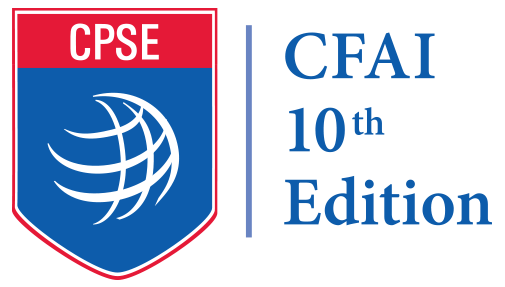The Center for Public Safety Excellence (CPSE) has launched an effort to create the 10th Edition of the Commission on Fire Accreditation International (CFAI) model. As part of CPSE’s commitment to continuous quality improvement, the process of creating the new edition will examine current and anticipated challenges faced by fire and emergency service agencies. Updating the model will ensure agencies seeking accreditation have a contemporary model for self-assessment that is consistent with current industry trends and community needs.
The CFAI model is used to guide fire and emergency service agencies around the world through accreditation with a focus on performance measurement, self-assessment and quality improvement. Accreditation is awarded to agencies that meet or exceed performance indicators within the model. To achieve accreditation, agencies complete a thorough self-assessment and review of internal policies and performance data. After the information is submitted to CFAI, a panel of peer assessors examines the documents and conducts an onsite assessment. The final step is a public hearing before the commission. CFAI accreditation is valid for five years; currently, more than 250 agencies maintain CFAI accredited status.
“Accreditation shows our community that we are dedicated to continuous improvement, adhering to industry best practices and holding ourselves accountable,” said Fire Chief Tommy Thompson, CFO, Camp Pendleton Fire Department, California. “Like other fire departments, we’ve seen immense benefit in going through the process and have been able to identify and celebrate our strengths and also find areas where we can focus on improvements.”
In 2015, CPSE completed an extensive revision of the CFAI model and published the 9th Edition. Acknowledging the rapid pace of innovation, research and change facing today’s fire service, CPSE will lead a methodical and highly collaborative process to update that edition and ensure the accreditation process continues to help agencies improve.
“With every edition, our development approach becomes more finely tuned and deliberate, resulting in models that are increasingly effective in accelerating the transformation of the fire and emergency service,” added Preet Bassi, CEO at CPSE. “Just like the agencies we accredit, CPSE is always looking to improve and prepare for the future.”
The 10th Edition review and update process will be led by a team of fire and emergency service leaders with real-world experience in order to ensure the model achieves its goal of helping departments identify areas of excellence and opportunities for improvement. CPSE will engage the industry by collaborating with more than 60 fire service leaders and subject matter experts.
“We are thrilled to embark on the creation of a new and improved 10th Edition that will help shape the future of this industry,” said CPSE President Allan Cain, CFO, public safety director in Cary, North Carolina. “We look forward to engaging with fire service colleagues, stakeholders and community members at all levels and receiving their ideas and feedback throughout this process.”
Subject matter experts and other volunteers to assist with the evaluation and update of the CFAI model will be recruited in the coming months. After extensive research and a thorough review of the current model, a draft 10th Edition is expected to be released for public comment in the summer of 2019. The new model will be approved and published in winter 2019 and implementation will begin in the early months of 2020. By spring 2022, agencies will be able to receive accreditation under the new model.
Additional information about the development of the 10th Edition will be available on www.cpse.org/cfai10. Join the conversation on Twitter using #CFAI10.

